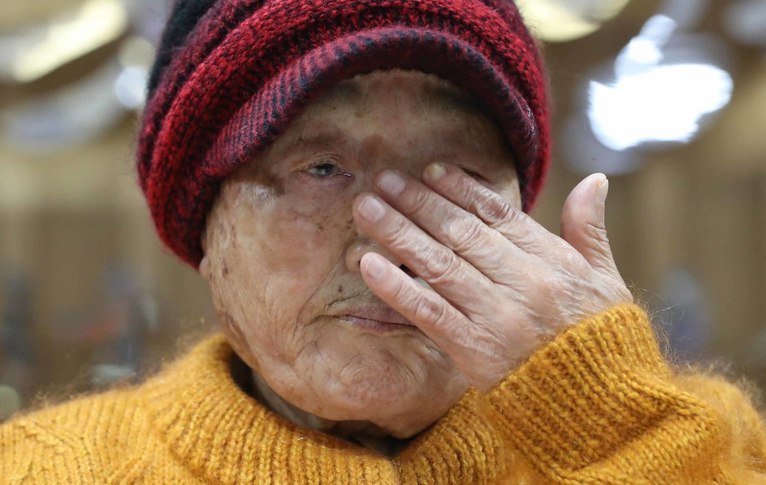Posted on : May.22,2019 16:46 KST
 |
|
A forced labor victim sheds tears in a press conference after winning her damages case against Nachi-Fujikoshi Corp. in November 2018. (Park Jong-shik, staff reporter)
|
On May 20, Japan asked South Korea to set up an arbitration committee to address the two countries’ dispute over the South Korean Supreme Court’s decision to award damages to Korean victims of forced labor. With South Korea refusing to engage in diplomatic deliberations, Japan is moving ahead with the conflict resolution procedures outlined in its 1965 agreement with South Korea about the right to make claims. Since the arbitration committee would be staffed by three members, one appointed by Japan, one appointed by South Korea and a third selected from a third country with both countries’ consent, the committee cannot be set up without South Korea’s cooperation. Japan has nevertheless unilaterally asked for an arbitration committee appears not necessarily to resolve this issue but to internationalize the dispute and play to a domestic audience. That’s truly a regrettable development.
The Japanese government has expressed extreme opposition to the South Korean Supreme Court’s decision, claiming that the issue of forced labor was resolved by the 1965 claims agreement. Japan has instructed Nippon Steel & Sumitomo Metal and other companies guilty of war crimes not to pursue reconciliation or provide compensation and has demanded that the South Korean government take responsibility and resolve the issue on its own as a party to the claims agreement. After the attorneys representing forced labor victims recently applied for the liquidation of seized assets of Nippon Steel & Sumitomo Metal, high-ranking officials in the Japanese government have publicly mentioned retaliatory measures, such as trade sanctions and restricting the issuance of visas.
Japan’s decision to pressure South Korea by calling for an arbitration committee that has little chance of actually being created appears to be a political gesture. It’s a unilateral action that disregards the fact that South Korea is a democratic country with power divided between the three branches of government, and it contributes absolutely nothing toward resolving this issue. If Japan actually wants to resolve the dispute, it ought to start by retracting the orders it has given to Japanese companies to refuse to pay compensation or engage in dialogue. Its next step should be seeking a solution with the South Korean government.
Nor does the South Korean government have any reason to hesitate about engaging in dialogue with Japan, in whatever form that may take, in order to improve its relations with Japan, which are currently at a nadir. We hope that the G20 summit, which will be held in Osaka at the end of June, will be an opportunity for restoring the channel of dialogue between the leaders of our two countries.
Please direct comments or questions to [english@hani.co.kr]






